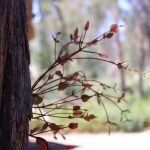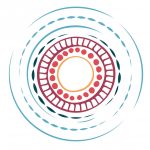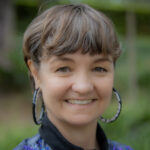Ngaa-bi-nya is a framework that offers a practical guide for the evaluation of Aboriginal and Torres Strait Islander health, social and justice programs. It means to examine, try and evaluate in the language of the Wiradjuri people of central NSW. It is pronounced naa-bi-nya.
It has a range of prompts to stimulate thinking about critical success factors in programs relevant to Aboriginal and Torres Strait Islander people’s lives.
Ngaa-bi-nya is one of the few tools developed specifically to reflect Aboriginal and Torres Strait Islander peoples’ contexts.
It prompts the user to take into account the historical, policy, and social landscape of Aboriginal and Torres Strait Islander people’s lives, existing and emerging cultural leadership, and informal caregiving that supports programs.
Ngaa-bi-nya’s prompts across four domains – landscape factors, resources, ways of working, and learnings – provide a structure through which to generate insights necessary for the future development of culturally relevant, effective, translatable, and sustainable programs required for Australia’s growing and diverse Aboriginal and Torres Strait Islander populations.






